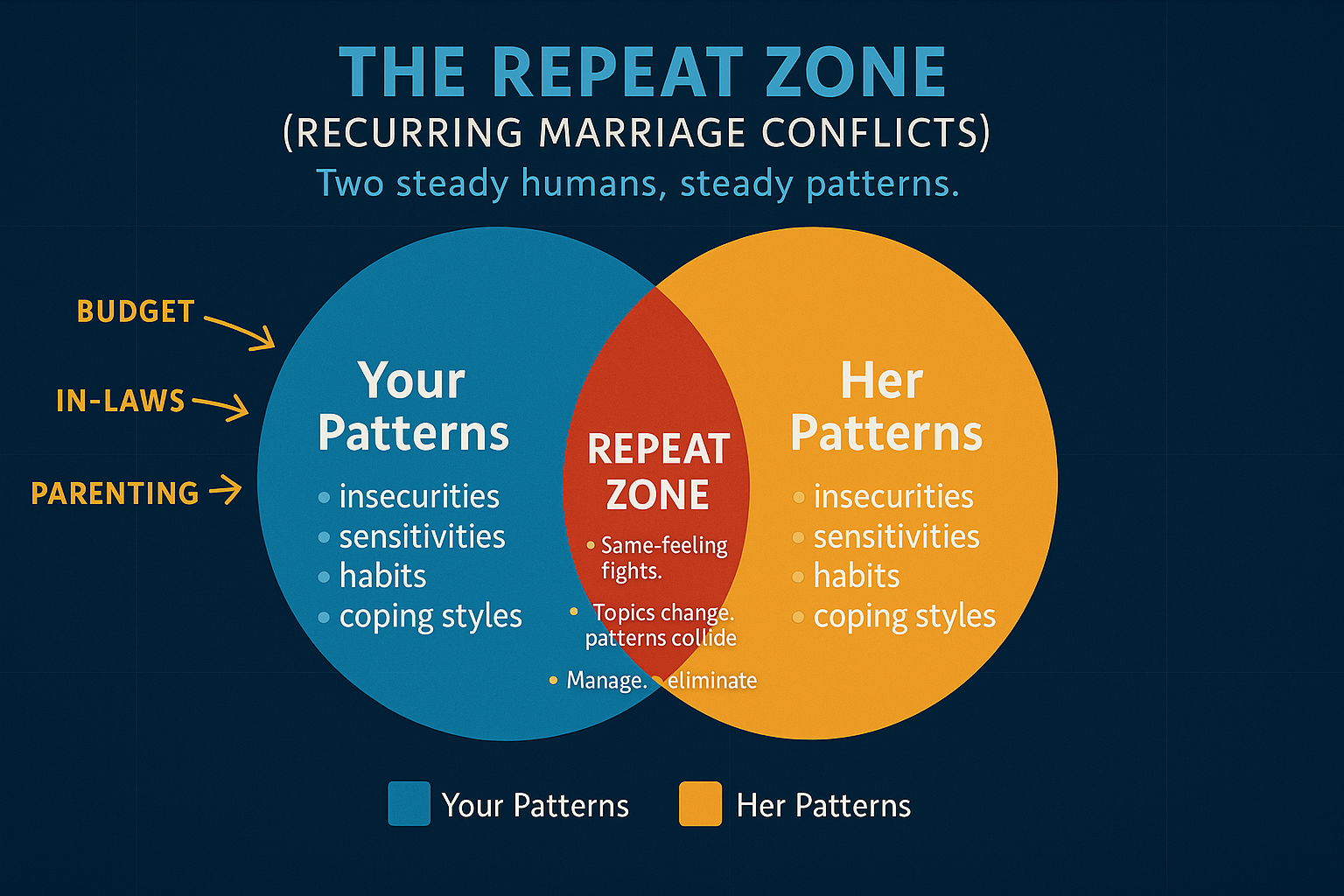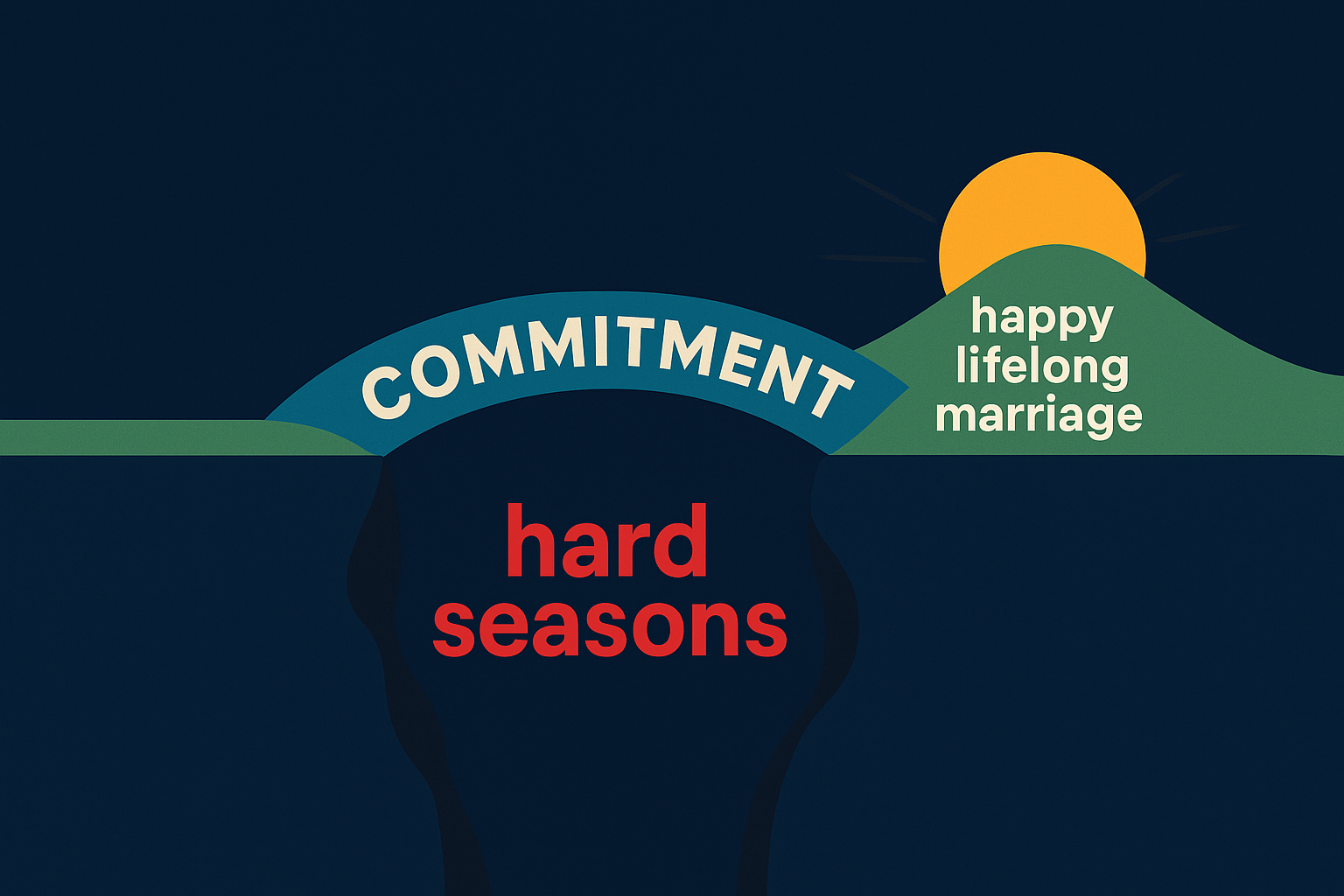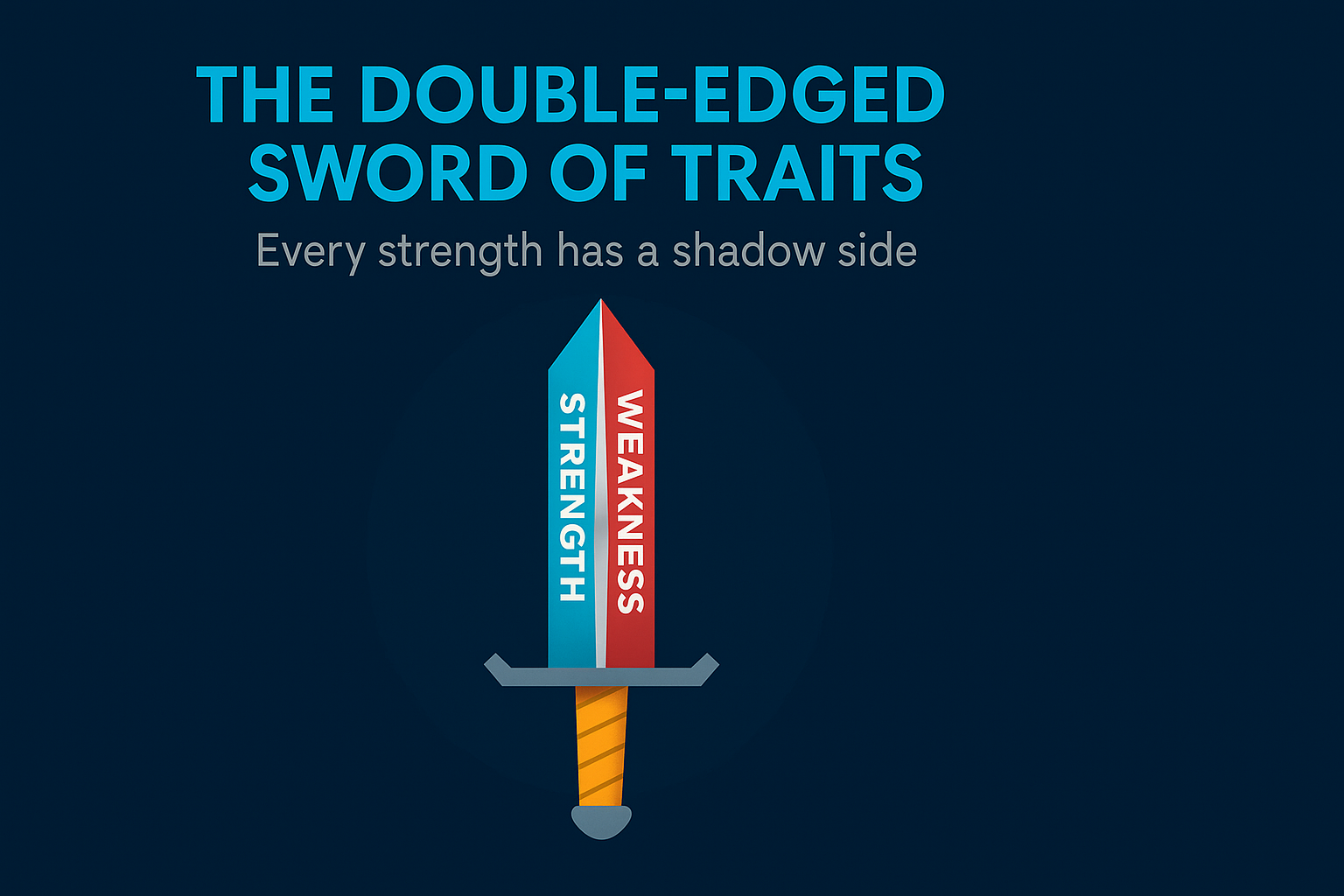Episode Details
Episode Outline (At-a-Glance)
- Opening & the cultural lie about “unfixable” problems
- Why conflict feels the same (your habits + your sensitivities)
- Strengths/weaknesses come in pairs (the “Johnny” story)
- Commitment defined (and why feelings need it)
- What real change is (self-awareness > self-erasure)
- Boundaries & safety (commitment isn’t enabling)
- Encouragement to persevere (lifelong marriages endure cycles)
- If you’re separated: why staying committed still shapes you into a better man
- –> Sign up for the Husband Help Group waitlist
Key Takeaways
- Cyclical feelings are normal. They’re not evidence your marriage is doomed.
- Commitment outlasts feelings. Let vows, not moods, steer your actions.
- Manage, don’t mutate. You won’t become a totally different person; you can become a better steward of who you are.
- Use boundaries when needed. Love includes limits with harmful behavior… But those boundaries don’t have to be divorce.
- Hope is rational. Most “same-problem” marriages improve when both spouses grow in self-awareness and keep their promise.
Welcome to Husband Help Haven. I’m Stephen, and today, I want to dive deep into a myth that I’ve seen quietly break apart marriages for years during my decade-plus of coaching men through separation.
There’s a lie going around, and it’s hurting husbands, wives, and families. The lie is simple:
If your marriage keeps having the same problems over and over again—or you have “unfixable” issues—you should leave.
Chances are, you’ve heard or even felt this yourself. Maybe you’re stuck in a rough patch in your marriage that feels like it just keeps repeating, no matter what you do. Maybe you’ve even wondered if it means your marriage is doomed.
I’m here to tell you it’s not that simple—and, more importantly, there’s hope. Let’s pull apart where this belief comes from, what actually happens in every marriage, and what “fixing” really means when it comes to marriage issues.
The Dangerous Lie About Marriage Problems
Most of us pick up this lie early, even before we get married. You’ll hear it in advice columns, friends’ well-intentioned words, and, yes, even from therapists sometimes. Here’s how it usually goes:
“If your marriage keeps having the same fight, the same pain, or the same dissatisfaction, maybe you’re just too different. Maybe you’ve grown apart. Maybe this is one of those ‘irreconcilable differences’ and it’s time to move on.”
The Trouble With “Irreconcilable Differences”
The term has become too broad in its use. If one spouse wants kids and the other doesn’t, THAT is on paper an irreconcilable difference… One party wants A, the other party wants Not A.
But even though that sort of thing SHOULD be the standard for irreconcilable differences (which I still don’t agree are truly irreconcilable) more often, this “divorce diagnosis” is handed out for stuff that just… feels hard for a long time.
Feeling alone, hurt, or frustrated is hard—but it’s not “irreconcilable differences.”
In fact, this mindset turns every unhappy moment into a potential divorce reason, which is simply not how real relationships work.
Cyclical Problems: Why Marriage Feels Stuck
Here’s the truth, and I’m telling you this after working with men for over a decade:
All marriages—happy or hard—experience problems that feel the same over the years.
That might sound discouraging, but it’s actually NORMAL. And it’s NOT bad news; it’s actually good news. Because once you figure out how to manage the core problem,
It’s Not Just You (Or Her)
- The quirks, insecurities, and bad habits you both bring into the relationship don’t just vanish.
- Patterns form, and when you clash, it’s often in the same places, even if the topics change.

Example:
Yesterday you argued over money. Last month, it was about how you parent. The words change, but the feelings—hurt, frustration, and disconnection—are familiar.
“The way your marriage feels when you’re going through problems will feel very similar across different issues, across different problems. And actually, that’s just as much because of you as it is about your spouse.”
Commitment Is King (and the Real Meaning of Your Vows)
If marriage problems are cyclical, does that mean you’re stuck feeling unhappy forever?
Absolutely not. Here’s where commitment comes in.
What Is Commitment, Really?
Forget the fairy tales and “you’ll always make me happy” promises. Real marriage vows are all about committing when you don’t feel like it:
- “For better or for worse”
- “In sickness and in health”
- “For richer or for poorer”
All say: “I’ll be here, even when my feelings tell me to run.”

Two ways to define commitment:
- Remove alternatives: As you face other paths (“maybe I should leave?”), commitment means cutting those off. You stay tunnel-visioned on your promise.
- Present tense choice: Commitment is choosing, today and every day, to do what you promised—no matter how you feel.
“A commitment is a present tense decision to do what you’ve decided you would do in the past, whether you feel like it or not. That’s the promise part.”
This isn’t about “gritting your teeth through misery forever.” It’s about holding on through the tough seasons long enough that the cycle can move back toward closeness and joy.
Self-Improvement: It’s Not What You Think
Let’s kill another myth: “If your marriage would just get fixed, you’d be happy forever.”
What does “fixing” look like? Too often, we imagine it means getting rid of all our weaknesses, or changing who we are at the core.
That’s just not realistic, for you or your spouse.
What Does Self-Improvement Actually Mean?
- Not: Becoming a totally different person for your marriage.
- Actually: Learning who you are. Gaining self-awareness. Accepting your strengths and weaknesses, and managing them.
“Self improvement and showing up better in your marriage is not about changing who you are. It’s actually about learning who you are.”
You bring certain personality traits to your marriage. Your wife does, too. Some are strengths; some are weaknesses. And—here’s the kicker—each strength almost always has an attached flaw.
Your Strengths, Your Weaknesses: The Double-Edged Sword

Let me share a story that’s stuck with me for years to help you see what I mean.
The Tale of Little Johnny
When I was volunteering at Royal Family Kids Camp, there was a boy named Johnny. He was stubborn—so stubborn, he would do nothing he didn’t want to do. It was exhausting for his counselors.
When the week was over, the counselors prayed for Johnny, that as he grew, his stubbornness would become “stubbornness for good” instead of just selfish stubbornness.
That prayer changed how I look at people’s strengths and weaknesses.
“Almost every single personality strength has an accompanying personality weakness.”
How This Shows Up in Marriage
- The considerate spouse—always thinking of others—might also turn anxious and need constant reassurance.
- The fiercely independent spouse—reliable and resilient—might get distant when things are tough.
You fell in love with your spouse’s strengths, but eventually, you’ll experience their flaws, too, because every trait comes with a “shadow.”
Managing, Not Eliminating, Weaknesses
You might be thinking: “Okay, so what—just suck it up, deal with the flaws, and accept a hard marriage forever?”
Not at all. Marriages can get better—sometimes dramatically so.
But “better” doesn’t mean all weaknesses disappear. It means you both learn to:
- Lean harder into your strengths
- Take responsibility for how your weaknesses show up
- Mitigate the damage those weaknesses can cause
If you think marriage success means you or your wife totally transforming, you’ll stay miserable. But if you realize it means you both grow in awareness and management, things change.
“As you gain self awareness, your self improvement will come through managing and mitigating the effect of your weaknesses, taking greater responsibility that they are your weaknesses, and also leaning harder into your strengths so that they have a stronger presence in your relationship than your weaknesses do.”
The Pattern of Recurring Problems
Fights about groceries, parenting, or chores might look different on the surface, but the underlying feelings and complaints—“You never listen!” “I’m not heard!”—tend to stay the same. That’s not “proof” of a broken marriage; it’s just two imperfect people learning to interact.
But What About “Deal Breakers” and Bad Behavior?
Let’s put the brakes here for a second.
- Is commitment a license for bad behavior?
- Does this mean you should let anything go—addiction, abuse, neglect, cruelty?
Absolutely not. There are limits, and boundaries are vital.
Setting Boundaries
- Commitment is not the only answer when the other person is bringing true toxicity, abuse, or addiction into the marriage.
- There are behaviors that make a marriage unsafe, and you are allowed to protect yourself and your loved ones.
- Often, deep self-improvement (especially with addiction or abuse) requires help from a third party—counselors, doctors, real support groups.
But most divorces aren’t for these “extreme” reasons. They’re for generic unhappiness, mixed with years of small miscommunications and recurring frustration.
“Boundaries do have a place… But the vast majority of people who get divorced are not suffering these really, really bad, physically dangerous things in their marriage, they’re just not.”
The Real Goal: Hope, Growth, and Getting Through
Let’s look at the bigger picture. I know marriages that made it “to the end”—decades together, growing old, still in love. They didn’t avoid tough seasons. They made it through because they stayed committed, managed their differences, and grew in self-awareness.

The True Purpose of Commitment
- To Bridge Hard Seasons:
Commitment is the bridge from one difficult season to another—back to joy, peace, connection, and the rewards that come only with time. - To Hold On Long Enough For Good to Return:
Every long marriage you admire has hills and valleys. The valleys only end if you keep going.
“If you want that sort of dream marriage where you are into your old age and you are enjoying having made it and sort of surrounded by your loved ones… it takes staying through the hard seasons.”
Resources, Support, and What’s Next
If you’re currently going through separation, it’s okay if you’re the only one holding on to that commitment. It’s hard, it feels lonely, but showing up with integrity is still worth it—not just for your marriage, but for you as a man.
“Because guess what? The person that you show yourself to be through this process, you get to keep that person, no matter what.”
In a few weeks, I’ll be opening up private access to the new Husband Help Group… It’s an all-new premium support group for men who want to fight for their marriage, and become better while doing it. If that sounds like you
Join the Husband Help Group waitlist
Don’t worry, you’ll hear a bit more about it as we get closer to launch. Until then, thanks for listening, and we’ll see you (hopefully) next week!
Much manly love,
– Stephen


